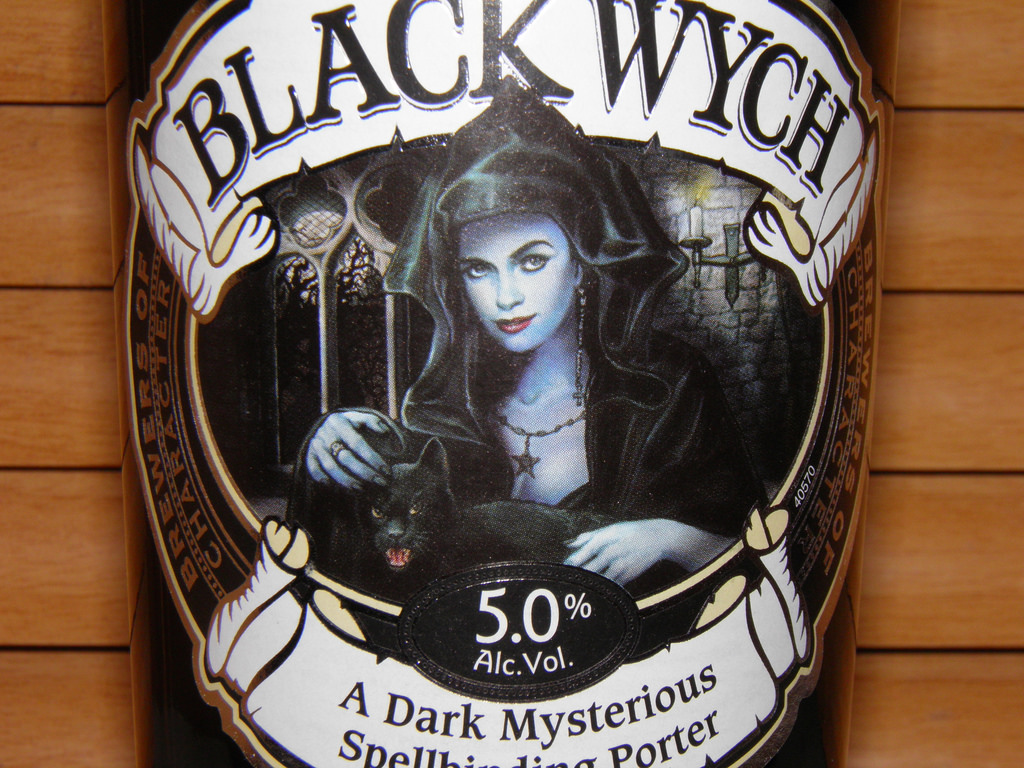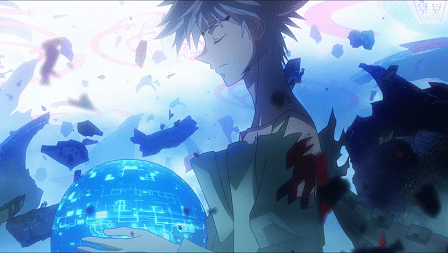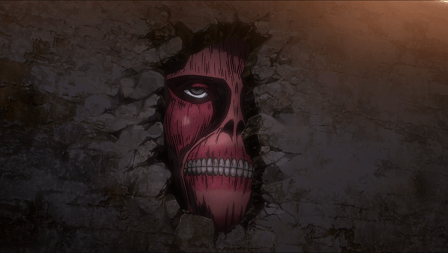(Cue stoner voice)
“You got grit in my fantasy story, man!”
“Nah man, you got fantasy in my gritty story, dude!”
Convergent evolution is the acquisition of the same biological trait in unrelated lineages. The classic example is that of the wing: flying insects, birds, and bats all evolved use of the wing but obviously share no biological links.
The same could be said for baseball and cricket. Each sport was invented separately from one another but bear similar traits.
Convergent evolution also happens in media sometimes, when a particular issue or topic will gain critical mass and spawn a number of discussions. Such could be the case behind three separate authors all feeling the need recently to write about the word ‘grimdark’ and the implications it carries.
Richard K Morgan, Joe Abercrombie, and Sam Sykes all recently posted on their blogs concerning their thoughts on grimdark writing. Thankfully, Sam Sykes provided a succinct description of just what grimdark is;
“grimdark” is when a story’s setting, mood or theme is one of relentless violence, despair and grit, usually to a degree that some would find excessive to the point of absurdity. Grimdark tends to be defined as self-serving; that is, grimdark is grimdark for the sake of conveying an exceptionally dark and brutal setting rather than as a product of the story.
It was originally coined to describe the setting of Warhammer 40k, derived from its tagline “in the grim darkness of the far future, there is only war.” And, like all things coined on the internet, it’s undergone quite a few changes in definition and application until it’s pretty much used for whatever someone happens to disagree with or dislike at the time.
Including fantasy novels.
The word ‘grimdark’ has several meanings depending on the person using it. Sometimes it is a well thought out literary comment, for good or for bad. Other times it is a dismissive accusation thrown at a work that is deemed ‘too dark’. And then there are those who throw it at fantasy, claiming that the genre glorifies violence and darkness.
There are reasons for the word, and it can have a place in the lexicon of fantasy literary criticism. It just needs to actually take a place that makes sense and isn’t just the catchcry of hyperventilating religious wackjobs (author’s note: I’m a very unashamed Christian, but that doesn’t mean there aren’t hyperventilating religious wackjobs out there).
I hadn’t actually come across the word grimdark until my friend pointed me in the direction of Sam Syke’s blog post. Whenever I wanted to describe a book by Richard K. Morgan or Mark Lawrence I used the word ‘gritty’. In fact, when it came to Joe Abercrombie’s ‘Best Served Cold’ I was relatively harsh in my review of the book.
Sadly, while his writing hasn’t let him down, Abercrombie’s understanding of what makes an enjoyable story apparently dissipated like fog in December heat when he turned his attention to ‘Best Served Cold’.
My premise behind my frustration with the book was that Abercrombie seemed to have gone out of his way to ensure that every character that made an appearance on the page was utterly devoid of redeeming characteristics. The book was depressing, which may simply have been an unintended reaction caused by my own depression or some fundamental flaw in the characters.
My view on this is relatively simple: a book needs to have something that the reader can relate to. Some disagree with me, but I feel this is a fundamental truth of writing. You needn’t make every character relatable, but to create all your characters to be reprehensible villains stretches the trust of the reader.
If I’d known of the word, I probably would have used grimdark to describe Best Served Cold, and meant it with all the vitriol that is making the word a catchphrase of morons everywhere.
On the flipside of the coin, one of the greatest feats of literature since J.R.R. Tolkien completed ‘The Lord of the Rings’ is Steven Erikson’s ‘The Malazan Book of the Fallen’, a ten-book series that is nothing but grit. Another series I loved is Glen Cook’s ‘The Black Company’ series, which the aforementioned Erikson described as “Vietnam War fiction on peyote.”
I have no problem with grit. In fact, it is my preference these days. My undying love for the Lord of the Rings has been seriously stretched in the past years as my reading has expanded to encompass a wider range of authors, authors who have presented me with realistic fantasy world’s (I realise ‘realistic fantasy’ is something of an oxymoron, and it will be something I’ll deal with in coming weeks). A realistic story told from the inglorious muddy trenches presents me with some of the most captivating writing I’ve ever encountered.
So there are obviously grades of grit, or grimdark: a variety of levels and execution.
In Abercrombie’s contribution to the conversation on grimdark he lists seven features of writing that he believes grit bleeds into;
- Tight focus on character
- Moral ambiguity
- Honesty
- Sometimes life really is that shit
- Modernity
- Shock Value
- Range
And while I agree in principle with his sentiments, in reading his post I found Abercrombie seemed to be writing solely for the purpose of defending his own choices. In the end, I can’t fault him. All I can do is have my own opinion: that he took Best Served Cold too far and failed to provide the reader with any one character to grasp on to. Putting himself in the same category as George R. R. Martin’s ‘A Song of Ice and Fire’ seemed a bit far-fetched, but once again rammed home just how troubled the phrase grimdark is.
I want to be clear: I love Joe Abercrombie’s work. I’ve personally spoken to him, loved ‘A Red Country’ and found the level of grit perfect. He knows how to write, I just think Best Served Cold was a misstep, and perfectly representative of what grimdark is: ie, so gritty as to remove any relatable qualities from the characters.
Erikson, Cook, and Martin are all perfect examples of how to weave grit into your work. As Abercrombie said in his post;
Cities before the coming of modern sanitation were pretty ripe and unhealthy places. People who walk hundreds of miles ill equipped can get suppurating chafe-sores in their arse-cracks. Glittering heroes often do have filthy skeletons in their closets.
But just as Martin allowed for one of the most heartrending deaths and Erikson seems to find perverse pleasure in putting his armies through torturous conditions, so too did Martin give us Arya and her desire to right all the wrongs around her and Erikson gave us Fiddler, survivor and optimist.
The key is hope. “I think it’s kind of shitty that wanting some hope and love in one’s books is considered unrealistic,” said Sykes, “on par with rainbows made out of kittens that slide into a pot of gold.” He continues to say that “grimdark happens when we’re born in shadows. The skies are always dark, people are always terrible, war is ever-present and the heroes are always justified in doing terrible things because that’s just how things are done.”
One might wonder why I’ve bothered to put ‘pen to paper’ if Sykes has said everything I believe, but I wanted to use this platform as a way to back him up, and to back up my love of the genre. I love fantasy literature; I want to be a part of it one day as more than the reviewer and commentator I am at the moment. Fantasy – along with SciFi – has the chance to shape humanity’s view of itself, and inspire thought and introspection. But it can so easily also just revert back to the dime-a-dozen Tolkien and Gemmell rip-offs as well. It can be more than just a titillating walk through a made-up medieval landscape of blood and boobs.
So let’s try to steer our ship away from a grimdark world where hope is nothing but a four letter word and everyone has a closet full of skeletons. Suppurate your sores all you want, and slice the limbs from bodies with wild abandon: but leave some room for hope and aspiration.











I dunno. Grimdark does need defending these days. I say this as one who loves to read and write it.
Apropos of which: “rainbows made out of kittens that slide into a pot of gold” … is Sykes’s formulation here meant to evoke hope and love? Did he actually stop to visualize this image, I wonder? If so then perhaps he *has* been writing too much grimdark lately. It makes me for one think of Drogo’s “crowning” of Viserys in ASOIAF, upside-down. With bonus cruelty to animals. Ugh. That’s a bit too grimdark even for me.
I don’t know why this post was required. So, fiction doesn’t HAVE to be apocayptic and full of pain and falire and a dry account of choices and consequences? Pretty pathetic, actually. The whole thing was just a farce of Abercrombie making his blog more interesting and testing his ability to generate a discussion. It is just semantics and hyperbolic back-and-forth. There is no point or intelligence to the whole thing.
Most importantly there wasn’t a single opposition but just discussion of some points, but then Richard Morgan for some reason got pissed off…